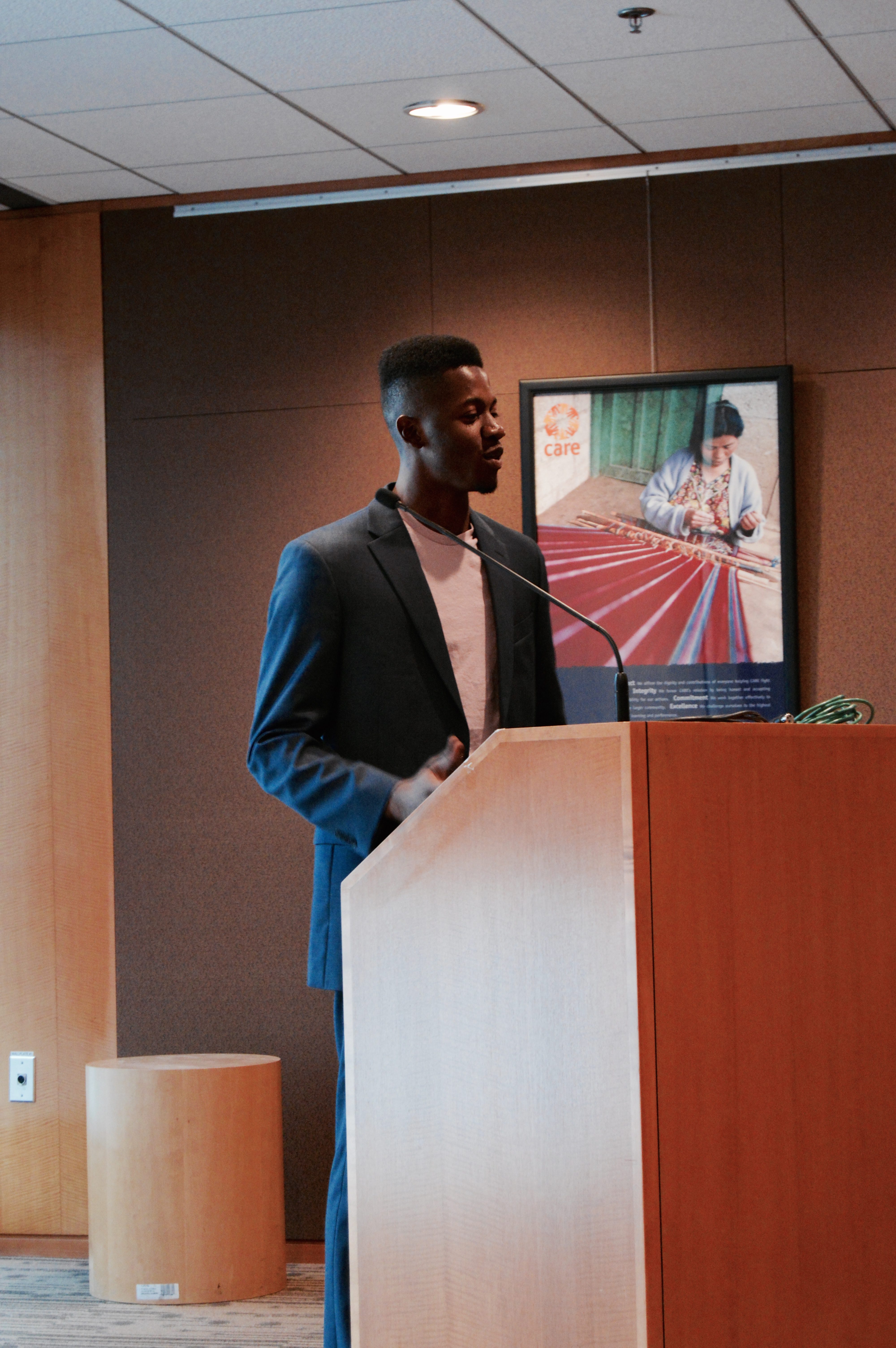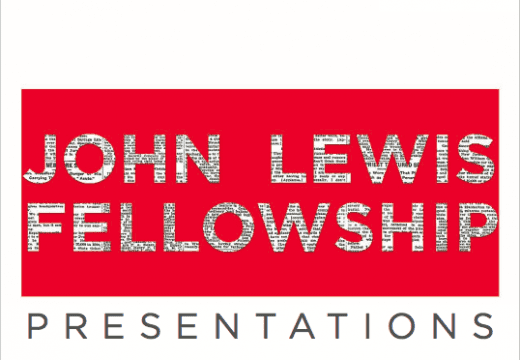Details
Article
“We look back, not to become inflated with conceit because of the depths from which we have arisen, but that we may learn wisdom from experience. We look within that we may gather together once more our forces, and, by improved and more practical methods, address ourselves to the tasks before us. We look forward with hope and trust”
Anna J. Cooper
It was fitting to me that during the first week of my Fellowship, I participated in the historic social justice practice of nonviolent protest. As activists and individuals dedicated to justice, we exist in the lineage of the liberation struggle of people of color. We are fluent in the language of resistance and resilience flows through our body, as it is part of the culture of the struggle we inherited from the warriors that came before us. Yet, as history has shown, despite our efforts, systemic oppression evolves to sustain its’ pervasive barriers that continue to make equality a far off dream rather than an attainable reality for marginalized groups. Across America, widespread apathy plagues the lives not only of the privileged, but the marginalized as well. Apathy, a lack of interest or concern, allows individuals to turn a blind eye to the ever present daily injustices we face. Apathy allows the history of erasure people of color have faced to go unaddressed and unchallenged. Apathy is a barrier to progress, covertly fueling America’s commitment to maintain rather than dismantle the systems of supremacy that exist in this country.
It was fitting to me that during the first week of my Fellowship, I participated in the historic social justice practice of nonviolent protest.
This now introduces the question of how do we combat systemic and individual apathy in our schools, communities, and country? Part of the answer to that question requires something that America has never been: accountable. There needs to be a critical assessment of racism and power in this country, and that is not possible without a call for us to honestly examine how we all have had a hand in the history of oppression, subsequently cultivating a demand for justice and truth as the products of an accountable society.
Part of the answer to that question requires something that America has never been: accountable.
Often times, society makes the claim that it is love that we need to heal and move forward during times of pain and strife. While this is a tempting narrative, the type of love that is often called for does not emphasize the need for truth nor address the forms of love inherent to truth. Our personal understandings of love are too individualized to emerge as the solution to global pain and oppression. Demanding accountability and justice, however, is a more progressive demand because justice is what love looks like objectively and publicly. The suppression facing our world cannot be solved by something that is not bound to universal morality, but rather by something that understands and affords every human being dignity and equity (i.e. justice ). Moreover, truth encompasses loves; a desire for truth requires accountability and unapologetic confrontation of not only the love in this world but the hate as well which is the essence of truth. If we do not prioritize a commitment to the responsible interrogation of societal structures and an unearthing of how both love and hate are embedded within them, then we as activists run the risk of ignoring the truth and reproducing the oppression against the lives and labor of marginalized people.
Through this John Lewis Fellowship, it has become clear to me that every individual plays a role in dismantling oppression.
Accountability exists as a broad term that can manifest in many ways, so what does it look like for young activists striving for change? Through this John Lewis Fellowship, it has become clear to me that every individual plays a role in dismantling oppression. Whether it is on the streets protesting, in the classroom learning, or advocating for policy reform in politics, there is a collective responsibility and effort required to eradicate systems of oppression. Investing myself in the solidarity and growth of students of color at my academic institution, sharing the knowledge I acquire with those who systematically do not have access to the opportunities I have, while challenging the present apathetic state America resides in is what I hope to dedicate my efforts to. More succinctly, I see my role play out through engaging education of myself and my community, challenging society to reimagine human rights, and work to affirm the Black identity and its intersections in all spaces I create.
Our relentless and persistent efforts to dismantle the system must be grounded in an acknowledgement and challenging of prejudices we have internalized through our participation in the system
Being on a college campus privileges me to the title of intellectual or scholar by simply being at Emory University. However, the term intellectual is not reserved for the academy and is not an empty term, but rather, a term that comes with responsibility to engage in public scholarship. Accountability in the academy exists as intellectualism not for a grade or degree, but as education for liberation and education for service. Education for liberation and service, requires an understanding that social justice is the work of the perpetually undone. It is a life commitment that mandates us to understand that our work will never be complete. Our relentless and persistent efforts to dismantle the system must be grounded in an acknowledgement and challenging of prejudices we have internalized through our participation in the system, which is something we will always have to work through. Furthermore, education for liberation and education for service requires for us to be selfless with the knowledge we acquire. Social justice work requires the acknowledgement of any privileges you possess as well as the leveraging of those privileges when they can work to dismantle the system. Therefore, those privileged in to have access to academic spaces should be committed to the dissemination and production of a discourse around what they have learned. The discourse is essential to growth and truth, as it requires an open mind dedicated to the inclusion and exchange of ideas in the name of justice. Accountability is remaining malleable to learning facilitated by exposure to different perspectives, receiving constructive criticism from others, as well as engaging in self critique.
The pain of oppression perpetuated by the United States currently exists as a narrative in the margins and darkness; negated by the privileged who cling to claims of “progress” and “multiculturalism” and validated only by the individuals who know oppression and darkness as well as their own name. Reimagining human rights means confronting the biased application of the term against marginalized groups as well as combating the complete denial and exclusion of people of color’s history and experiences that comes as a result of this skewed practice. Furthermore, if Americans invested in social justice are not challenged and tasked with understanding how America’s historical dehumanization of marginalized people domestically and abroad (via colonialism) connects to the contemporary oppressions then our approach to justice will not be rooted in historical truth. To progress towards truth and freedom, we as activists and allies in our own right must constantly challenge the exclusive paradigm our society operates in, where humanity is only afforded to a certain segment of society, subsequently forcing a large population of individuals to work for something they should receive innately. It is our duty to work to change America’s commitment from one of white supremacy to one of dismantling oppression.
When we as marginalized people love ourselves, we chip away at a system that denies us any sense of self or humanity, making our inherent existence and acts self love as resistance against systems of oppression.
The erasure marginalized people face in America is not limited to their history and culture, but also their personhood and ability of selfdetermination. That’s why, an essential part of our duty is working to make sure marginalized identities are being affirmed throughout all aspect of society marginalized people navigate. To affirm the identities of marginalized people, we must love ourselves, because when we love ourselves we are engaging in a revolutionary act, capable of the paradigm change and eradication of oppression. When we as marginalized people love ourselves, we chip away at a system that denies us any sense of self or humanity, making our inherent existence and acts self love as resistance against systems of oppression. Furthermore, I view a part of our duty as as marginalized people is to believe in our future and never settle. Refusing to settle is an act of futurity when we choose not to settle, we are making a statement of hope; we are willingly inhabiting a space that assumes progression despite having no proof of a progressive future’s existence.
“Sankofa” a word in the Twi language of Ghana, is a phrase that was used frequently throughout the John Lewis Fellowship. Literally translating as “go back and get it,” Sankofa’s greater meaning lies in looking back at the past, mistakes made, lessons learned, and victories won, to better equip and prepare us to work towards a more equitable, just, and true future. I believe in movements and I believe in the power of the people. And when I look back, I see a history of triumph, resilience, and greatness from my people, and so I work now because I know I have the power to forge a future of liberation.


